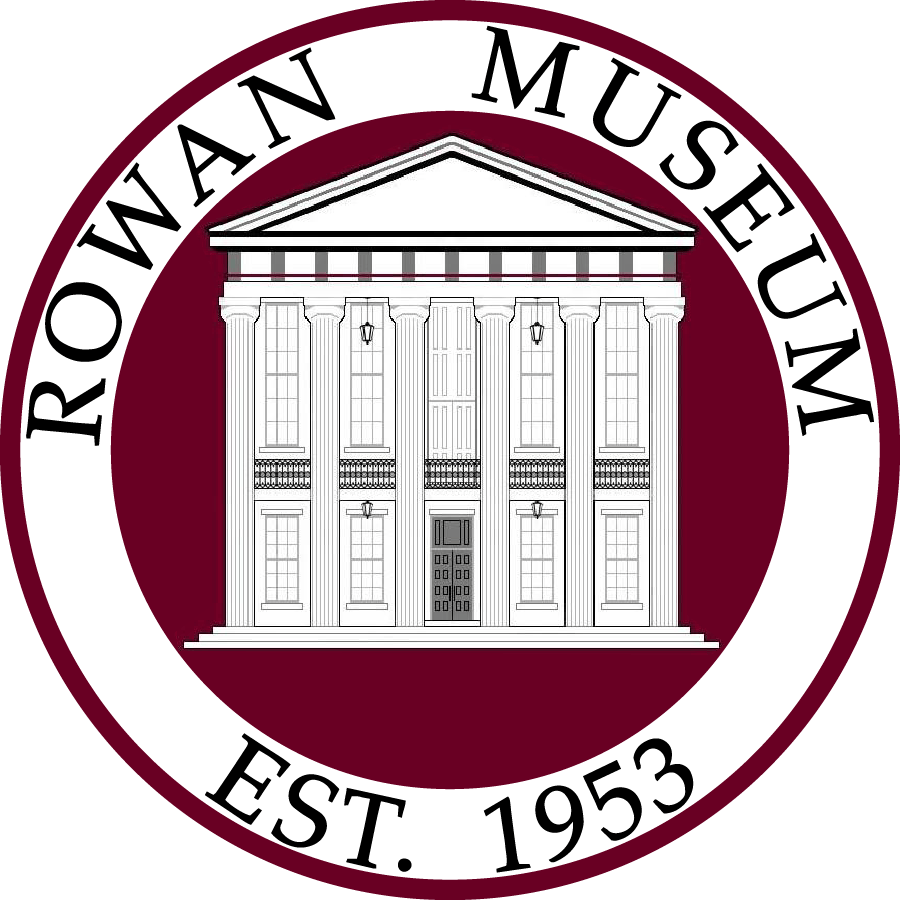Plan your visit
Located near Granite Quarry, NC. Head south on NC Highway 52 towards Albemarle, NC. Turn onto Stone House Road in Granite Quarry near the two gas stations. The Old Stone House is located a half mile down the road. Please park in gravel lot and walk across to take a tour.
History of Old Stone House
Pictured: Cemetery. Michael Braun's tombstone is already gone but you can clearly see the stone of his first wife Margarete, the stone wall that surrounds the cemetery, and the split rail stacked fence along the road.
The Michael Braun House, known locally as the Old Stone House, was built by German immigrant Michael Braun in 1766.
It is the oldest standing structure in Rowan County, possibly the oldest in the Piedmont, and sits on 274 (at one time almost 3,000) acres. There is a unique inscription carved on the façade of the house:

The engraving is believed to refer to the owners (Michael and Margareta Braun), the house’s completion (October 1766), and an abbreviation of the saying “Pensum Meines Bendigem Mit Christim Dank,” which translates to, “My undertaking completed with thanks to Christ.” The true meaning of this inscription is under debate.
Braun and his family immigrated from Germany to Pennsylvania before moving south to Rowan County. They made their fortune on as wheelwrights and wagon-builders, and Michael Braun himself was involved in local politics and trade. He had a hand in establishing Dutch Pine Meeting House (now Union Lutheran Church) and German Lutheran Meeting House. Braun was the first German man to serve on a Rowan County jury and he went on to serve the county as a tax collector. He also owned property on the North Square of Salisbury to conduct his business. While Braun did not serve in the military, he guarded suspected loyalists at the Salisbury jail during the American Revolution. He also sold crops, hay, and livestock to Revolutionary troops on credit. In 1776, he was appointed as a Justice of the Peace for Rowan County.
Historical records such as tax lists, wills, and deeds, indicate that Michael Braun enslaved at least fifteen people. Much of the work on Braun’s property, including the house and almost 3,000 acres of land, would have been completed by enslaved laborers. They raised livestock, hunted game, planted and cared for the crops, provided food for the Braun family and themselves, cooked and preserved food, raised the children, and catered to the family’s every need. Michael Braun’s estate profited and thrived directly from the unpaid, forced labor of enslaved people.
While we do not know the names of every one of the enslaved people who lived on the property, we do know some. The 1768 tax lists who people named Patt and Bett. In 1807, Michael Braun willed two enslaved women, Betsy and Emily, to his wife and daughter and mandated that they keep them for at least ten years following his death. Eleanor Braun inherited Betsy, and Susannah Braun inherited Emily. Eleanor kept Betsy until 1817, and Susannah is believed to have kept Emily.
The house remained in the Braun family until 1911, when it was sold out of the family and narrowly escaped being razed. While abandoned, it was ransacked and vandalized. The floorboards were removed and burned, the windows were broken, and the original kitchen burned to the ground. A large tree fell and caved in a section of the house. In 1927 and 1948, descendants of Michael Braun purchased the house and began preservation efforts but could do little more than that because the cost was so high.
In 1959, the Rowan Museum purchased the house. Led by Frank Horton, founder of Old Salem and the Museum of Early Southern Decorative Arts (MESDA), the Rowan Museum spent the next six years fully restoring the Old Stone House. Portions of dismantled colonial-era buildings, such as floorboards, hand-blown glass, and metal hinges, were used to restore missing architectural elements lost to time and looters. The burned-down kitchen was fully rebuilt using physical clues on the house and an 19th-century photograph taken from across the street. The Old Stone House opened to the public as a museum in 1966, exactly 200 years after it was built.
The period-accurate log dependency, a colonial storage building beside the house, was moved to the property from the Eller farm in Eastern Rowan County. The reconstructed beehive oven was built on the site of the original bake oven in 2016. It was based on the Bethabara settlement’s 1780s historic oven. The Braun family cemetery rests across the street from the house and houses seventeen marked graves. In 2018, a ground penetrating radar survey in the cemetery revealed forty-one total possible graves. The locations of the property’s slave dwellings are not currently known. It is believed that most slave dwellings would be located away from the house. Some have suggested the loft above the kitchen could have served as sleeping quarters for enslaved people who served in a domestic role.
The Rowan Museum hosts four major events throughout the year on the grounds of the Old Stone House. The first Saturday in April is Springtime in the Backcountry. In June, we host Revolution in the Backcountry, an opportunity to learn from living history demonstrators and observe an American Revolution skirmish reenactment. Our largest event, Germanfest, takes place on the third Saturday in September, and it is a celebration of the German ancestry of Rowan County as well as a rich educational opportunity. Finally, the second Saturday after Christmas is Old Stone Christmas. The Rowan Museum also hosts kids’ camps at the Old Stone House during the summer.
The Old Stone House is open on Saturdays and Sundays from 1:00 PM to 4:00 PM from April to November, or by appointment by calling the Rowan Museum at 704-633-5946.
